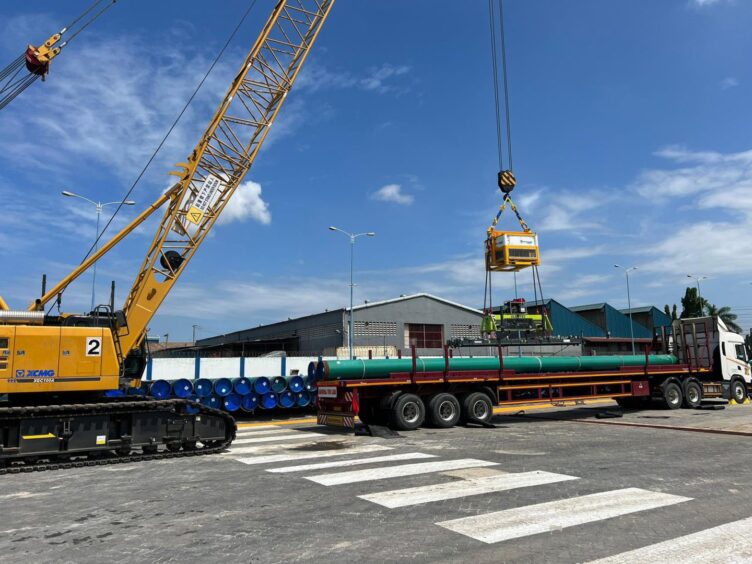
The first 100 km of line pipe for the East African Crude Oil Pipeline (EACOP) has arrived in Dar es Salaam, according to a statement from the company.
EACOP shareholders celebrated the arrival on December 12, at a storage yard operated by its local logistics shareholder SuperDoll.
The pipeline will run for 1,443 km, from Kabaale in Uganda to the Chongoleani peninsula, near Tanzania’s port of Tanga. It includes 296 km of pipeline in Uganda and 1,147 km in Tanzania.
The company said it was ensuring its activities “adhere to the most stringent social, environmental and safety standards”. It will use new trucks and trailers and it has also invested in vacuum lifting and roborigging to keep workers safe during installation.
Shareholders in EACOP took the final investment decision (FID) on February 1, 2022. TotalEnergies has a 62% stake in EACOP, while Uganda National Oil Co. (UNOC) has 15%, Tanzania Petroleum Development Corp. (TPDC) 15% and CNOOC International 8%.
Speaking in Kampala recently, Minister of State for Energy Sidronius Okaasai Opolot said the oil and gas sector was prioritising Ugandans.
There is “positive discrimination for the communities hosting the operations. At the peak it is expected that about 160,000 people will be employed. Out of these 14,000 persons will be directly employed in the oil and gas sector”, he said.
Controversy
Construction of the pipeline is controversial, though. The pipeline has become a focal point for foreign environmental activists, with protests around the world focused on those providing services.
Some locals have also objected to the construction, particularly those living along the pipeline route. Households in Buliisa district filed a complaint with a court on compulsory land acquisition. They had objected to the value of compensation.
They filed on December 4. The court ruled on December 8 that it could hold the compensation.
One of the NGOs helping the households was TASHA Research Institute Africa. Abdul Musinguzi of the NGO described the court ruling as absurd.
“Poor community members were not given a chance to defend their rights after they were ambushed with the hearing. Our courts need to serve the community, not individuals and neocolonial corporations,” Musinguzi said.
The East African Court of Justice (EACJ) is also set to hear an appeal against EACOP. EACJ ruled on November 29 that a case against the project backers could not go ahead.
Natural Justice, and others, have decided to appeal the ruling. The case focuses on “protecting the environment, the rights of affected communities, and the adherence to legal principles”.
In particular, the case asks EACJ to rule on whether EACOP “adheres to the environmental and human rights standards enshrined in the community’s laws for the benefit of current and future generations”.
